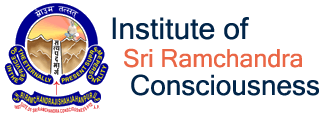
BASICS OF PRANAHUTI
The Prana is being offered (ahuti) by a person for the improvement of the condition of the aspirant. This raises a few questions given below:
It is the practical experience of those who tried to meditate, that mind seems to be without control and it leads from one set of thoughts to another and the control of mind has always been felt as very difficult.
Therefore, we may safely say such a help is necessary. However, in the process we should not lose our freedom. Control of mind is essentially sought for, as a means of
liberation from the bondages one has. The process of meditation should naturally not lead to another bondage. So the Pranahuti that we are to have should have no strings attached to it. That we should not be bound by that and the help we get should be such as to be a force of liberation and a force that leads us to fuller realisation of our potential. If that is assured then the help is most welcome.
Bodhayanti Parasparam Volume I - page 119
Is such an extraneous influence justified?
Each one of us is an expression of the Divine and have our own parts to play and destinies to realise is well known. Our relationship with the Divine is unique and is not shared by any other. This is a one to one relationship with the Divine that we have. We have our own past karmas that are being enjoyed and it is unalterable. How can any person infer here and change our destinies? Granting that some other person has such capacity, is it moral? These are all the questions one has to address himself to and arrive at a satisfactory conclusion.
Usually a person thinks about himself, his problems etc. All his actions are generally motivated by some selfish considerations. It is only when his consciousness grows beyond his self, the questions and problems of others gains importance in his consciousness. Therefore, when the task of Pranahutiis considered, it is essential that the person who offers Pranahuti is above the normal level of consciousness and one who is capable of considering doing good to another without any consideration of self interest. The normal individual who lives in the level of Pinda is not capable of this ahuti. It is necessary that he is of higher level, atleast a person who has access to the Brahmanda consciousness. Then he is not confined himself to his body and the structure has no capacity to confine or limit him. His consciousness expands to cover a vaster sphere which includes others also. He is capable of percolating his consciousness through others for the benefit of others. When such a consciousness develops, ahuti is no more interference with others and is essentially to be considered as betterment of the state of consciousness prevailing. Therefore, the question of interference is not there. As a matter of fact this is the most desirable thing that should happen. If the number of persons who are capable of such ahuti increase the possibility of having a better world of harmonious human beings comes true.
The role of an extraneous person in sadhana then becomes one soul trying to uplift another as a fraternal obligation and duty towards the Divine. In as much as such a service cannot be selfish, the concept of extraneity does not fit into this scheme of things. For one who sees everything as his own, who is the self and who is the other? Further, it is to be understood clearly that the extraneous help received is like a fulcrum which is used as a support to perform a difficult task. The role of the supporter is to give sufficient base for the person to attend to an uphill task. Or we may treat the assistance as that of a catalyst.
Whether, in reality such a possibility exists or that really Pranahuti happens is a matter to be experienced rather than debated upon.
Bodhayanti Parasparam Volume I - page 120
....More read in Pranahuti Book
Is Pranahuti similar to hypnotism or mesmerism?
This leads us to the question whether this is not similar to hypnotism or mesmerism. Pujya. Babuji puts this question himself while explaining the system. He stated that after transmission one feels calm and collected while after hypnotism people feel heavy and dull. He also has stated that hypnotism is materialistic in nature compared to the spiritual nature of Pranahuti. It may be clarified that the purpose of the process of hypnotism is essentially trying to help in ascertaining causes hidden in the deep core of consciousness and assist in the curative processes. It is definitely not oriented towards the Realisation of self as such. It has its goal in the materialistic sphere. Pranahuti is essentially a spiritual tool for spiritual purposes.
Bodhayanti Parasparam Volume I - page 115
The main difference between Pranahuti and hypnotism is that the aspirant is never put into a morbid passive condition before giving suggestions. The suggestions are not at verbal level at all and are given from the original thought level itself. While it is a prerequisite to put a person in passive receptive condition to hypnotize him and then give suggestions for his alleged improvement; in Pranahuti, the trainer does not make any such effort and works with the full confidence that there is no barrier between him and the aspirant and the existence is one only and works out his suggestions for the inner development of the sadhaka. This is no extraneous interference with the will of the aspirant but it is one aimed at improving the quality of mental life of the sadhaka and increasing his will power. It is not subjecting one to another's will but is aimed at improving the will of another through one's own.
Bodhayanti Parasparam Volume I - page 126





